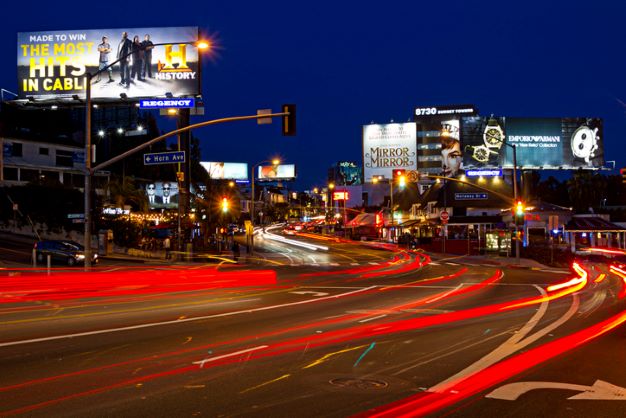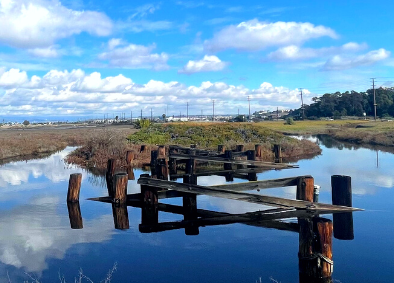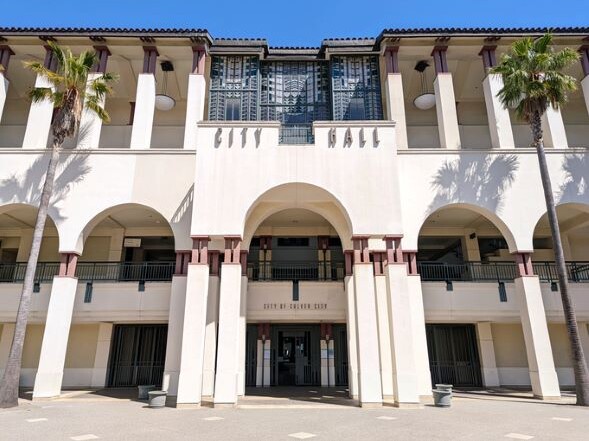In anticipation of a potential countywide sales tax increase, the West Hollywood City Council unanimously approved an ordinance for the November Ballot at its meeting Monday that would direct money from this sales tax increase to services in West Hollywood.
In June, the Los Angeles County Board of Supervisors approved placing a ballot measure on the November ballot that would repeal the current quarter-of-a-cent per dollar sales tax in place for homelessness services and replace it with a half-of-a-cent per dollar tax for the same purpose.
If West Hollywood’s measure passes, it will direct a quarter-of-a-cent sales tax directly to West Hollywood, but only if the county measure passes as well. This will redirect approximately $5 million given to the county so that West Hollywood has the first say on where the money from that tax increase will be used.
Tax-related measures can be a sensitive topic for voters, so part of the conversation around the ballot measure was writing it in a manner that clearly explained the ordinance’s purpose. Most importantly, the idea that this was not a direct tax increase, but only a redirection of funds that would only go into effect if an outside tax increase were imposed on Beverly Hills.
The urgency to pass such a measure was also considered with the city in a surplus and not in need of significant funding at the moment, though a city survey showed more than six in 10 residents believed the city had at least “some need” for additional funds. However, if the city were to wait until the after the measure passes and attempt to place a measure on the 2026 ballot, a conflicting countywide measure could redirect the money in a different way, overriding the city’s authority in the matter.
“If we don’t do this now,” Councilmember John Heilman said, “either the county or another government agency can do it and they would take those dollars and use them in the way they wanted.”
Public commenters who understood the measure and its intent expressed their support for it and gave their thoughts on how it should be portrayed to the public. One commenter — Ted Green — noted that Beverly Hills passed a similar measure in 2020: Measure RP. Just like the West Hollywood measure, Measure RP does not impose a new tax on the city, but redirects funds from that increase to local control.
Measure RP’s ballot language was written to express its purpose more concisely. According to Ballotpedia, the ballot title voters saw explicitly stated that “The city may prevent [a potential] tax increase and instead impose a Beverly Hills transaction and use tax.” It was approved with over 70 percent voting yes on the measure.
Similar to another measure the city placed on the November ballot, the measure’s wording emphasizes the benefits to the city like cleaning up the streets, preventing and responding to crime, and attracting and retaining local businesses. The language of the measure was changed prior to the meeting, and ensuring the wording made the measure’s purpose clear was a key piece of city staff’s presentation to the council on the measure.
The survey that revealed the residents’ feelings on the need for funding was conducted by research firm FM3 Research, and Councilmember Lauren Meister asked the firm’s representative — Richard Bernard — about the “temperature” of the voters overall.
“I think voters are concerned about the direction of the city,” Bernard said, “particularly along the lines of…safe and clean, homelessness, and issues related to crime.”
While public safety was a primary concern and highlighted in the ballot measure, it would not be the only thing that it will fund. Designating the increase specifically for public safety purposes would classify it as a special tax, requiring a two-thirds majority vote to be passed instead of a 50 percent-plus-one voter majority.
The full ballot measure — approved 5-0 by the council — will read as follows:
“West Hollywood Local Control, Public Safety Measure: “Shall the measure providing funding for general services, including keeping public areas safe/clean; preventing/responding to crime; retaining/attracting local businesses; addressing homelessness; by redirecting to West Hollywood a ¼¢ sales tax if a future district sales tax within the County qualifies for a ballot and is enacted, generating approximately $5,000,000 annually in locally controlled revenue for West Hollywood residents until ended by voters, requiring audits/spending disclosure, be adopted?”
Sunset Strip “Speed Up” Photo by Merkuri2 on iStockphoto.com
Stay informed. Sign up for The Westside Voice Newsletter
By clicking submit, you agree to share your email address with Westside Voice. We do not sell or share your information with anyone.








